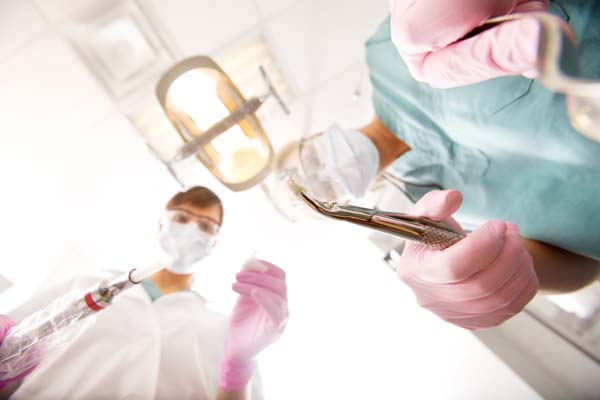What to Avoid after a Tooth Extraction
is a procedure done to remove a damaged or potentially problematic tooth. Like every dental procedure, the wound created by the extraction process heals over time with proper care. The dentist will provide the necessary aftercare instructions to follow.
What to avoid
Aside from using the recommended medications and resting adequately, there are certain things to avoid after the treatment is over to ensure a quick recovery.
Avoid brushing around the area
It is important not to brush around the extraction site for at least two to three days after the procedure. This will help the wound heal. Brushing around the area may disturb the blood clot in the spot, causing bleeding and infection. Pain and irritation may also occur due to brushing. It is advisable to rinse with salt water instead.
Avoid hot water compress
Following the tooth extraction, pain and inflammation may occur around the area. Pain relieves, and antibiotics can be used based on the dentist’s instructions, but applying a hot compress on the area is not recommended. Rinsing with mildly cold water is good but spitting or rigorous rinsing should be avoided for at least two days.
Avoid taking alcohol
Patients should avoid taking alcohol or any alcoholic beverage immediately after the tooth extraction procedure. Consuming alcohol can potentially dislodge the clot that forms around the extraction point, which can compromise the healing process. Also, smoking and tobacco use should be avoided. The chemicals in the tobacco can affect the clot and cause a condition known as dry socket.
Foods to avoid
Patients should avoid eating solid foods immediately after the procedure. While the mouth is still numb, it is advisable not to chew. One can resume solid foods when feelings return. It is better to stick to liquid foods such as yogurts, milkshakes, smoothies, soups and mashed potatoes. Soon after the tooth extraction treatment, some foods and beverages should be avoided for healing sake. They include hot drinks, spicy foods, hard, crunchy or munchy foods (popcorn, chips and nuts), as well as foods with a sharp or tangy taste.
Avoid Aspirin
Aspirin should never be used for pain (ibuprofen is usable). Aspirin is a blood thinner that can delay the formation of a clot, thus delaying healing. Patients should the medications prescribed by the dentist and consult the same before using any other drug.
Avoid using straws or sucking
The use of straws when drinking or sipping is unadvisable after tooth extraction. The suctioning effect can open the wound and cause significant discomfort.
Avoid poking into the gap
In the first few days after the procedure, having a gap between the teeth might seem strange. Avoid poking the area with the tongue or toothpick as that may disrupt healing, cause bleeding and may even cause a dry socket.
In conclusion
The above points are what you need to avoid after the tooth extraction procedure. If you experience complications or have additional questions, be sure to reach out to the general dentist for help.
Request an appointment here: https://www.drearlweisbrod.com or call Empire Dental - Earl Weisbrod, DMD at (602) 567-4883 for an appointment in our Phoenix office.
Check out what others are saying about our dental services on Yelp: .
Related Posts
A tooth extraction may be necessary if the tooth is too decayed to be repaired. After the tooth has been extracted, it is important to allow the area to heal completely. Eating the right foods can help speed healing and avoid any complications. Read on to discover the right foods for you.The reason that dentists…
Anyone who has experienced a Dental Emergency can attest it is not fun. Not only is it painful, but it can also be scary. Even those who take good care of their teeth can experience a dental trauma, but the situation can be less stressful if one knows what to do.Following the appropriate steps can…
Routine dental care may be on hold, but you might wonder about emergency dentistry. If you have a dental emergency, you can still get the care you need. This is even more the case if you have a life-threatening issue, such as an infection. Read on to learn more about what to do if you…
Curious about emergency dentistry during the coronavirus (COVID-19) disease pandemic? The COVID-19 outbreak has caused many dentists to limit their elective services and transition into only treating patients who need emergency dentistry. Due to this, it is important for people to understand what constitutes a dental emergency. One of the more common oral health concerns…
